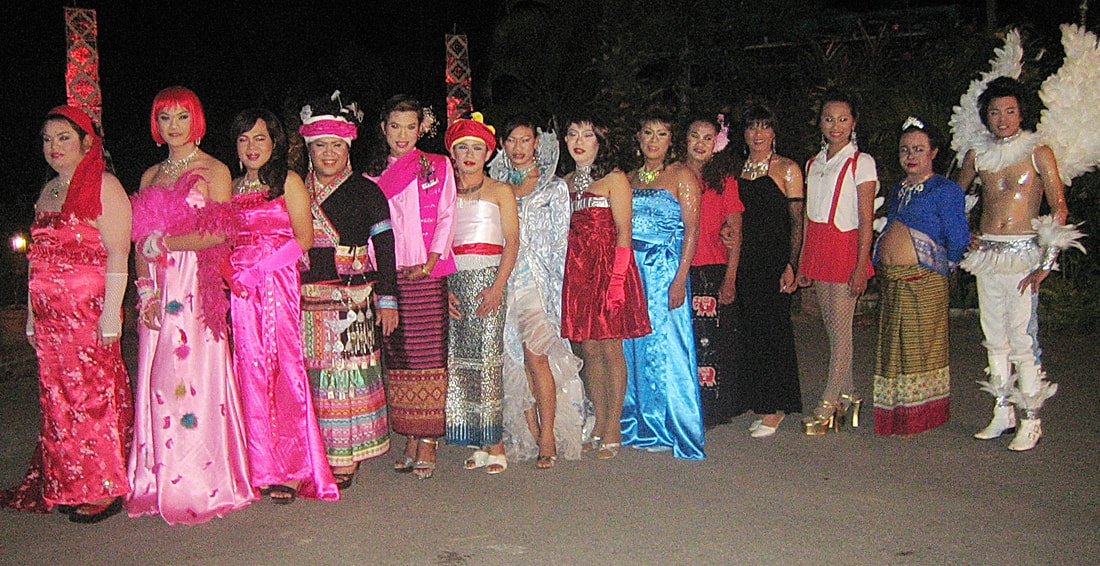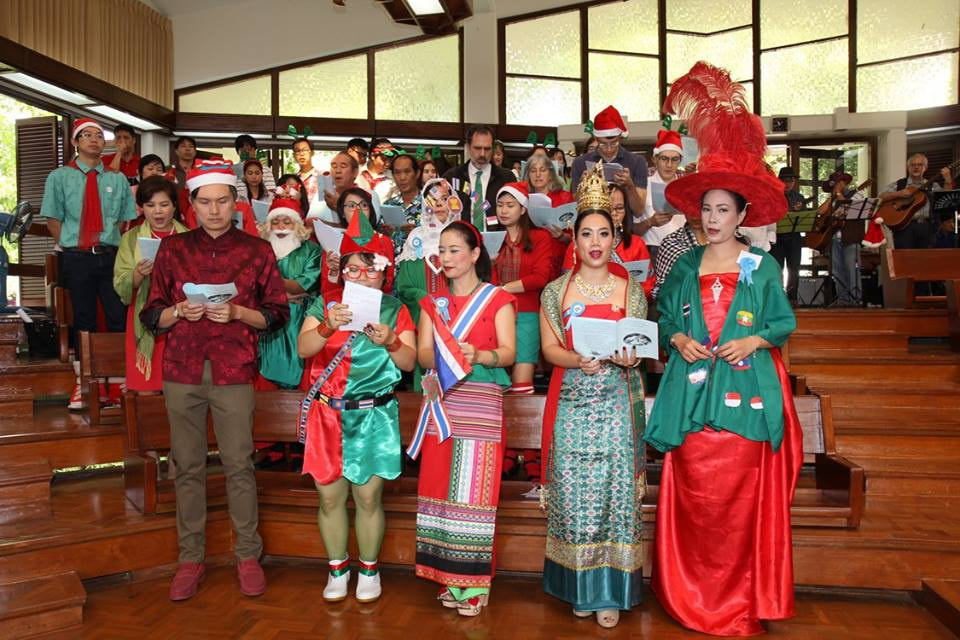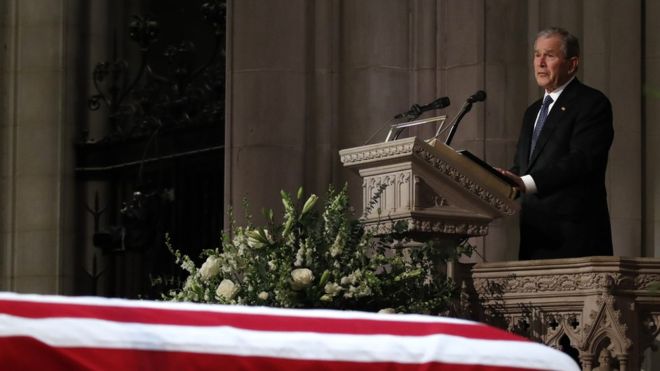|
Deck the halls with boughs of holly,
' Tis the season to be jolly, Don we now our gay apparel, Troll the ancient Yule-tide carol…. “’Tis the season to be jolly,” the familiar Yule-tide carol reminds us. It’s been a tough year, but on Christmas Day the Thai Cabinet gave us a present. So far, the gift consists of hope and a promise (made to us, remember, by politicians before an election, hem, hem). According to a bulletin flashed to the world around suppertime Christmas night: The Thai cabinet has agreed to a proposal by the Department of Justice in which the salient parts affirm certain rights for persons of diverse sexuality, including the right to establish families, rights to personal property (finances), right to adopt a child, inheritance, and right to register as life partners. This is considered a step toward full marriage equality, a sort of cautious approach. Now the proposal is sent to the National Legislative Assembly for consideration. The Bangkok Post explained a few hours later that the “Civil Partnership Act” will be in a queue behind more than 50 other bills to be considered before the National Legislative Assembly (NLA) adjourns on February 15, if national elections are actually to be held 7 days later as is still the plan. Whenever the Civil Partnership Act is passed by the NLA and published in the Royal Gazette, it will be the law of the land 120 days later. Before we launch our gay celebration we should note that this is a compromise measure. Civil partnerships are a new category of law. Marriages have been worked out in countless court cases, so the rights and responsibilities of married couples and the families of which they are a part are now settled. It will take several trials for ever-cautious officials to adjust to “civil partners” as parents, land-owners, tax payers and citizens. We are supposed to have almost the same rights as married couples with regard to children; the proposed act provides for civil partners to be able to adopt children, and all the laws with regard to adoption are already established. That is a major issue and a great relief. Another relief, previously expected to be litigious, is that the bill will give civil partners the same rights as married people with regard to assets and estates. As the Bangkok Post understands it, the proposal differs from law pertaining to married people in that civil partners will still be treated as (separate) individuals with regard to personal income tax, and some forms of state welfare. For example, if one of the partners is a government employee, welfare benefits [hospital insurance, retirement benefits, and coverage for parents] will not extend to the partner. The bill also stipulates that these partnerships must include at least one Thai national, and the individuals must be at least 20 years of age. I believe several factors facilitated this advance here in Thailand. First, LGBTK issues have not been politically targeted in a culture war between opposing factions. Second, all kinds of gay people have long been a vaguely identifiable “presence.” Third, religious groups who object to legitimization of LGBTK rights are a nearly voiceless minority. Fourth, it is seen, at the moment, as a political advantage for the government in power to be generous. Fifth, LGBTK advocates in Thailand have chosen to coax the authoritarian regime to act (rather than to mobilize the population). I predict that, cautious though the new act may be, the right to be parents and to have legal status will eventually have a widespread liberating effect. When this becomes law it will help a lot. It’s been a year in which we have not had much to celebrate. Now it seems we will soon be adorned with new status. So as our favorite gay holiday, New Year’s Eve, approaches let’s proudly don our gay apparel (suggestions above from previous years) and sing, “H A P P Y N E W Y E A R”
0 Comments
When government troops attacked the town where rebels had their headquarters, an unwed couple escaped to the young man’s ancestral village up in the hills. The trip was rough and as they arrived at nightfall the young mother went into labor. An old woman in the village cut the umbilical cord with a shaft of razor sharp bamboo and wrapped the baby boy in a clean cloth and put the mother and the baby to bed next to a hot fire.
Now, in the middle of the night three older boys keeping watch over a pile of newly harvested rice out on the hillside were awakened as they slept curled up next to their water buffalo. They trembled in terror at the sight of a radiant being hovering over their threshing floor, for these lads were deathly afraid of ghosts and they had a few dirty secrets so they were certainly unready to have their karma calculated that night. But the divine being said, “Don’t be afraid. Go down to the village and find the couple in Grandmother’s hut. Their baby will bring immense joy to you.” And just then, as they told it, the earth and sky were full of music giving praise to God. So with the kind of euphoria that an escape from death can bring, the boys went and found it was just as the angel had said. In those days three itinerant monks were making their way through the hills, camping at night in abandoned temples or cremation grounds. People in the village took rice out to the travelers and had their fortunes told. The couple brought their new born child to be blessed. The oldest monk tied white cotton strings around the baby’s wrists to secure its spirit and chanted a blessing. Then the youngest monk spoke secretly to the young father. “Be warned,” he said. “Troops are coming this way.” Even though the month of sequestration by a hot fire was not over, that night the young family left the village and crossed the river into the next country where they sought refuge. This recurring story may be taking a slightly different form near you. M E R R Y C H R I S T M A S REMINISCENCES
“What does Christmas mean to you?” I was asked to talk about this at a Christmas gathering last week. I decided to tell about the Christmas when the meaning changed most for me. It was the week before Christmas 1965, my first Christmas in Thailand as a Presbyterian missionary. The Rev. Pisnu Arkkapin and I were appointed to be the faculty Christmas tour leaders for ten first year students of the Thailand Theological Seminary. Although the group was young and green, they were practiced and ready to do a one act play based on the story of Jesus healing the man born blind, and they were ready to sing carols. Our first stop was a rural village in Lampang Province where a Christian physician had hopes of planting a church, a daughter of the mother church in Lampang. The plan was for our students to present their Christmas program on the elevated front porch of a small country house. There was no electricity yet, so lighting was by pressurized gas lamps (called “Lords of the Storm” as I remember). When it grew dark, villagers began to gather in the yard. Students engaged the children in games and singing. And then came the play. It got well under way. I was “back stage” in the living area of the house making myself useful and out of sight when rocks landed on the roof. Tiles broke over my head and created a disturbance. The culprits had been drinking home-made whiskey, we were told, and objected to Christians coming to their village. Their temporary interruption of the play was the main memory any of us had about our visit to Lampang. The next night we were aboard a third-class local train for the long trip to Bangkok. The train was crowded. Even so, we had a roped-off few seats in the back end of the dining car. After the food service ended and customers were gone the students began to sing Christmas carols. Soon the car filled with smoke from burning chili peppers. Anyone who has experienced it (as just about everyone with any experience of Thai cooking has) recognizes the smell immediately and knows that escape is the best option and coughing is inevitable. Ajan Pisnu told me that the cooks were displeased with our singing, or had been put up to it by someone. The idea of Christians spreading Christmas around was unwelcome. The night after that was Christmas Eve. Our venue was the oldest Thai (Presbyterian) Church in the country, Samray Church on the banks of the Chaopraya River in Bangkok. Christmas festivities were planned to begin at sunset with a big dinner, a church service, and then a program of singing and plays. By now I was beginning to gather that those two activities were essential for a Thai Christmas celebration as far as the young people were concerned. Christmas for youth groups would be sadly lacking if the groups could not sing and put on a play. In fact, three or four Samray Church youth groups sang and then set off to serenade. These serenading groups were called “Angel Choirs.” It was near midnight before our turn came. In addition to the dwindling number of Christians, the church yard was still crowded with people who came for the free food and entertainment provided once a year. Hardly anybody paid attention to our drama. It was the least important aspect of the evening for most of the crowd who were waiting for a fire-works display at midnight and Christmas presents. Then we, too, set off to serenade seminary benefactors scattered around Bangkok. In every case we arrived hours after we were scheduled to have been there. People were gracious, and not disappointed when our serenade was cut to one carol and “We wish you a Merry Christmas.” At only one place were we set upon by dogs, but Ajan Pisnu assured me neighbors had not put them up to it. So I came to Christmas morning with a radical new perspective about what Christmas means. Aside from all the memories I had grown up with, I now realized that here in Thailand, where Christians are barely 1% of the population, Christmas is inserted into a non-Christian setting. Every Christmas activity in this environment is an evangelistic undertaking. Every excursion by “angelic” youth choirs is also an intrusion into a potentially apathetic or hostile zone. In the background is always the sense that Christmas is radical. Half a century later, Christmas has been essentially domesticated. No drunken youths throw stones at groups singing Christmas carols in shopping malls. Burning chili peppers really would be just incidental to food preparation. The morning I typed this, a Buddhist abbot asked if he could bring a group of children to our house on Christmas morning. But in this environment Christmas is still more radical than I ever dreamed back home in central Illinois in the middle of the USA as the Eisenhower era was ending. The picture accompanying this blog essay is from the “essentially domesticated” Christmas celebration at Payap University in 2015, exactly 50 years after the incidents I am recalling. There are funerals and there are anti-funerals.
The funeral this week of the late US President, George H.W. Bush, reminded me of three narratives that emerge when famous people die. There are celebratory eulogies, recollections, and recriminations. These discourses are delivered in two types of forum. One is the familiar funeral, and the other is a kind prominent in our time that counters the eulogies being presented. Eulogies are formal remarks ostensibly memorializing the deceased. George HW Bush’s son, ex-President George W Bush, delivered a passionate and memorable eulogy, as did 3 others. Eulogies try to verbalize what will help everyone attending the funeral be satisfied that the deceased person is being properly remembered. Eulogies “work” when they celebrate the life of the person being laid to rest. The goal is for those closest to the deceased to agree, “Yes, that covers it.” Now they have done all they are supposed to have done for their loved one and they can move on with their lives. Meanwhile, countless others are recalling times or events when the deceased made an impact on them. The memories might be as trivial as, “I was standing on the platform when his campaign train passed through and he waved.” Or as impersonal as, “His highway expansion program transformed out town.” The recollections of those with close connection or expertise might be data significant enough to record and keep track of, to be sifted when historians in the future begin to analyze not only the biographical record but the outcomes that have turned out to be significant. That, part of which is legacy, takes at least fifty years to become clear, and needs to be reviewed periodically as data troves or new methods of study become available. It is one of the mistakes of those talking about famous people to believe that historians can begin valid work any time they choose, and a funeral is one such time. One of the speakers at HW’s funeral was a “presidential historian.” When a historian purposively selects only laudatory topics or buffers troublesome issues, the result is not history but eulogy. It’s the right thing for a funeral, but it’s not history. Frequently, historical reflection will reverse an initial consensus after a full range of primary source material and analysis of long-term results of actions are seen in light of relevant factors not apparent at the time. Occasionally a person has created enough sharp divisions of opinion and effects from their actions to incite an anti-funeral – a protest or outcry against the narrative that cultural norms would prescribe for a funeral. GHW Bush’s death created this sort of second discourse. Individuals and public media felt constrained to try to correct the record, or balance the accounts, by pointing out Bush’s failures and his negative impact. They have things to say, now, while the topic is current. Those anti-funeral messages are more significant when they are, or when they make clear reference to, valuable primary sources. At first, I thought this negativity toward Bush was peculiar to our time of politicization and cultural division, but it is not. True, we are politically divided in the USA and this is becoming strident and intrusive. Also true, the funeral of a celebrity or national leader tends to urge that arguments be deferred. This is a cultural value, for all funerals, actually. Negative comments are counter-cultural. The pressure to celebrate the positive creates a climate for exaggerated favorable regard for the deceased, and this is actually what the protest is trying to restrain. Critics don’t want a movement to gain momentum that whitewashes important aspects and flaws of their dead hero. But most of the time the funeral does its job of laying the person to rest, soon to be remembered, if at all, by things mostly incidental. Immediate negative response is not new, nor peculiar to our time. When King Leopold II of Belgium died in 1909, so angry was the public at his atrocities in the Congo, they lined the funeral route and booed. Shakespeare reminds us that Julius Caesar’s cremation was intended to be a mere formality following the assassin’s prior anti-funeral until Mark Anthony turned it into a revolution. Joseph Stalin’s lavish state funeral in 1953 (during which 109 people were crushed in a stampede) was such that the anti-funeral, as it were, was delayed until Aleksandr Solzhenitzen’s works published from 1962-1971 at about the time that Stalin’s daughter, Svetlana defected to the West (March 6, 1967). [I call Solzhenitzen’s recriminatory writing “anti-funereal” because it was a direct protest against the official adulation at Stalin’s funeral and afterward, but The Gulag Archipelago was not written as history; its refutation of Stalin was implicit.] The fact that a person has a funeral is an accomplishment not all major public figures achieve. Hitler fell so completely that of the millions who would have attended there were none left to hold one when he shot himself. |
AuthorRev. Dr. Kenneth Dobson posts his weekly reflections on this blog. Archives
March 2024
Categories |
| Ken Dobson's Queer Ruminations from Thailand |
|



 RSS Feed
RSS Feed
